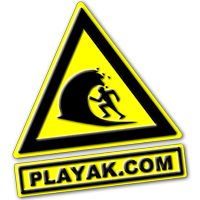[please login to make this ad block disappear]
|
Welcome,
Guest
|
TOPIC:
5 main skills you need to kayak decently? 19 years 6 months ago #8037
|
Please Log in or Create an account to join the conversation. |
5 main skills you need to kayak decently? 19 years 6 months ago #8041
|
Please Log in or Create an account to join the conversation. |
5 main skills you need to kayak decently? 19 years 6 months ago #8042
|
|
Please Log in or Create an account to join the conversation. |
5 main skills you need to kayak decently? 19 years 6 months ago #8048
|
|
Please Log in or Create an account to join the conversation. |
5 main skills you need to kayak decently? 19 years 6 months ago #8049
|
|
Please Log in or Create an account to join the conversation. |
5 main skills you need to kayak decently? 19 years 6 months ago #8050
|
|
Please Log in or Create an account to join the conversation. |
5 main skills you need to kayak decently? 19 years 6 months ago #8051
|
Please Log in or Create an account to join the conversation. |
5 main skills you need to kayak decently? 19 years 6 months ago #8053
|
Please Log in or Create an account to join the conversation. |
5 main skills you need to kayak decently? 19 years 6 months ago #8069
|
|
Please Log in or Create an account to join the conversation. |
5 main skills you need to kayak decently? 19 years 6 months ago #8076
|
Please Log in or Create an account to join the conversation. |
5 main skills you need to kayak decently? 19 years 6 months ago #8079
|
Please Log in or Create an account to join the conversation. |
Re:5 main skills you need to kayak decently? 19 years 6 months ago #8525
|
|
Please Log in or Create an account to join the conversation. |
Time to create page: 0.216 seconds



